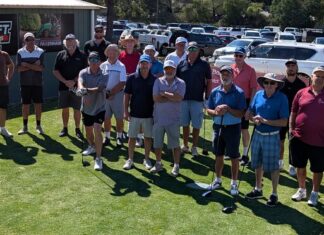MOUNTING evidence is available to support a strong case to hold a full inquiry into the process of local government and abuses of that process.
But who, or what organisation in Victoria and for that matter in Australia, would conduct such an independent inquiry or give authority for such an investigation?
Councillors for as long as I can remember have claimed councils were the closest form of government to the people and were best placed to represent people at local level.
Councillors should, therefore, be people elected from community representatives who have a history of community service within and for community organisations, and people who can be nominated and supported at elections by such groups.
Victorian ombudsman George Brouwer this month presented a now well covered report about activities contrary to the community good within the City of Brimbank Council in Melbourne’s west.
Readers may think Brimbank is an isolated case but it is not.
We now find that Australian Labor Party rules demand that Labor endorsed candidates must caucus before council meetings and that once elected to council they must abide by the caucus decisions on council business.
This makes a joke of council meetings and disempowers local government.
Simply it turns municipal councils into lame duck organisations.
That something was wrong at Casey was intimated on Anzac Day this year, during a conversation I had with Narre Warren South MP Judith Graley.
Ms Graley asked me, in front of the Berwick RSL Hall, if I now thought the council was working better.
I have not attended council meetings during the last year so I was unable to give a personal opinion on whether things had improved or not.
Nevertheless, even if the question indicated that the council wasn’t working well in the past, it was impressed on me that the Casey Council was now working well.
It may seem a strange conversation to be having on Anzac Day, but that also may be a time of reflection on our freedom and hard won democracy.
It had seemed to me that there had been nearly five years in which council election processes and our democracy were adversely affected by party politics.
An example that illustrates that was the Labor caucus decision during the last council term to advertise for a new Casey chief executive, which led to constant attacks on the incumbent chief executive Mike Tyler.
During the height of that controversy the then River Gum Ward councillor Janet Halsall lost her job as electorate officer for Ms Graley.
It came about because Ms Halsall was obliged under her tenure as an endorsed Labor councillor to abide by the caucus decision to advertise for a new Casey chief executive.
But she decided to break with the caucus and withdraw her support to advertise the position.
This meant the council re-negotiated a further term for Mr Tyler under a new agreement.
Under the policy Ms Halsall had broken the caucus and Labor Party rules and was asked to resign from her job as an electorate officer.
Banishment was her punishment.
Ms Halsall is now using the Whistleblowers Protection Act to protect herself and her family while making a submission to the Ombudsman.
The question to be asked is how and why was Labor Party policy, and rules, able to impinge on the security of a State Government employee for making a considered independent decision in a local government council meeting?
The implementation of those Labor Party rules by the government has taken away or largely reduced the ‘closest form of government to the people’.
Welcome council probe
Digital Edition
Subscribe
Get an all ACCESS PASS to the News and your Digital Edition with an online subscription
Former hoop kicks one home
GARFIELD GOLF
One of Garfield’s most popular annual events was played on Saturday in perfect conditions with the final of the Top Gun taking centre...







